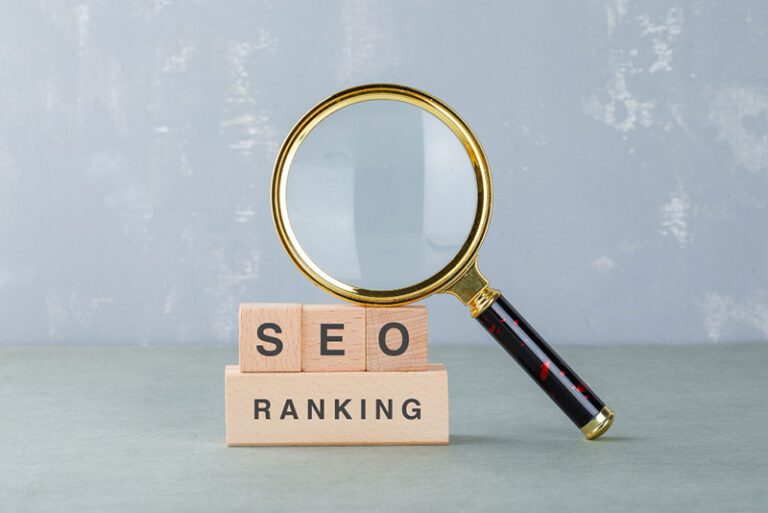12 Reasons Why Your Small Business Needs a Website

Some small businesses may feel they don’t need a website. Maybe you’re already handling as many customers as you can, or perhaps you offer a niche product or service with little competition. However, for most small businesses, a website is essential for growth, new customer acquisition, and long-term success. Relying solely on a Facebook profile or word of mouth can only take you so far. So, when people ask, “Does a small business really need a website?” here’s what we tell them.
1. It proves you exist
In today’s digital age, not having an online presence is almost like being invisible. If potential customers search for your business online and find nothing, they may question whether you’re a legitimate company. While a social media profile is a good start, it can give the impression that your business is more of a casual, side project rather than a reliable, long-term business.
Even if you operate a physical store, 85% of consumers research businesses online before visiting or making a purchase. A website ensures that they find you and take your business seriously.
2. Boosts your credibility
Approximately 84% of consumers trust a company more if it has a website, compared to just having a social media profile. Having your own website helps build credibility and professionalism. It shows you’re committed to what you do, and this perception can lead to increased trust and even allow you to charge higher prices for your services or products.
3. Accessible to customers 24/7
As a small business owner, you work hard, but you can’t be available around the clock. However, with a website, your business is always open. Customers can browse your offerings, learn about your services, and if you have an online store, make purchases at any time. Whether it’s a digital brochure or a fully-fledged e-commerce site, a website allows customers to engage with your business whenever it suits them.
4. Expands your audience
There are over 5 billion internet users globally. While you might not be targeting a global audience, a website helps you reach a larger local market. Almost half of all Google searches have local intent, meaning people are looking for businesses in their area. A well-optimised website can help you tap into this audience, attracting more customers from your local region.
5. Showcases your expertise
Even if you get most of your business through referrals, potential customers still want to know more before committing. A website is a great platform to display testimonials, reviews, case studies, and examples of your work, giving prospective clients the confidence to choose your business.
6. Enhances your SEO potential
Having a website gives you control over your Search Engine Optimisation (SEO). With the right SEO strategy, you can increase your visibility to people searching for products or services you offer, even if they’re not specifically looking for your business. Quality content and the right keywords can position your brand as a solution provider, attracting more customers organically.
7. Makes you more competitive
A website levels the playing field. You’re not only competing with other small businesses; you can also compete with larger brands. A well-designed, optimised website can help you outrank bigger competitors in local search results, bringing more customers and sales to your business.
8. Defines your brand’s personality
On social media platforms, your brand can get lost in the crowd. A website allows you to create a unique online space where your brand personality can shine through. From colours to fonts and imagery, a well-designed website helps differentiate you from the competition and leaves a lasting impression on customers.
9. Gives you full control over your online presence
When you rely solely on social media, you’re at the mercy of platform algorithms and policy changes. These changes can impact your visibility and reduce the number of customers seeing your profile. A website gives you full control of your online presence, allowing you to adapt your content, design, and user experience as needed.
10. Provides valuable data and insights
A website gives you access to data and analytics, offering valuable insights into your customers’ behaviour. You can see how visitors find your website, what pages they spend the most time on, and where they drop off. With this information, you can continuously improve your site and your marketing strategy to better meet customer needs.
11. Improves user experience (UX)
A website allows you to create a tailored user experience. You’re not limited to the design and functionality of social media platforms. You can add features that enhance the user journey, such as easy-to-use contact forms, streamlined checkout processes, and clear calls-to-action that guide visitors towards your business goals.
12. Easier than you think
Building a website doesn’t have to be expensive or time-consuming. Many web design agencies offer affordable solutions for small businesses. With the right content management system (CMS), you’ll be able to update and manage your website easily once it’s live. A good agency will guide you on the best practices for UX, SEO, and content to ensure your website is effective from day one.
Conclusion
So, does a small business need a website? Absolutely. While you can manage without one, having a website will significantly boost your visibility, credibility, and chances of long-term success. If you’re looking to grow your business, investing in a website should be at the top of your to-do list.
Ready to get started? Contact Nettl of Stockport today for a free consultation. Let’s bring your small business online!





